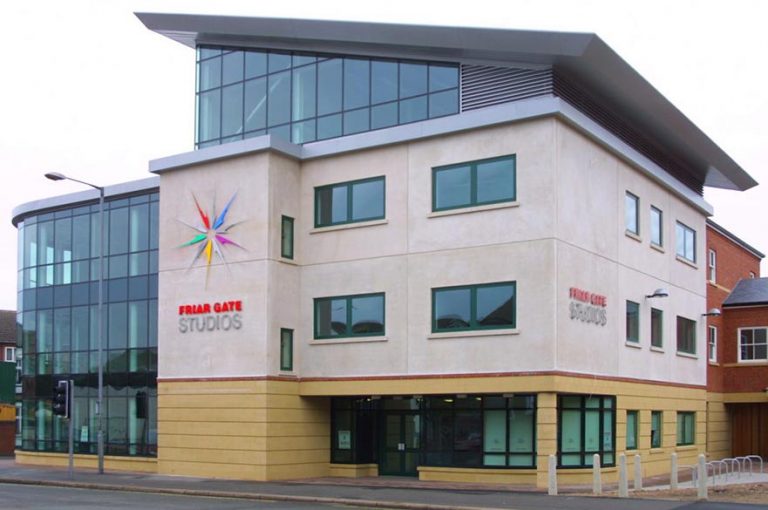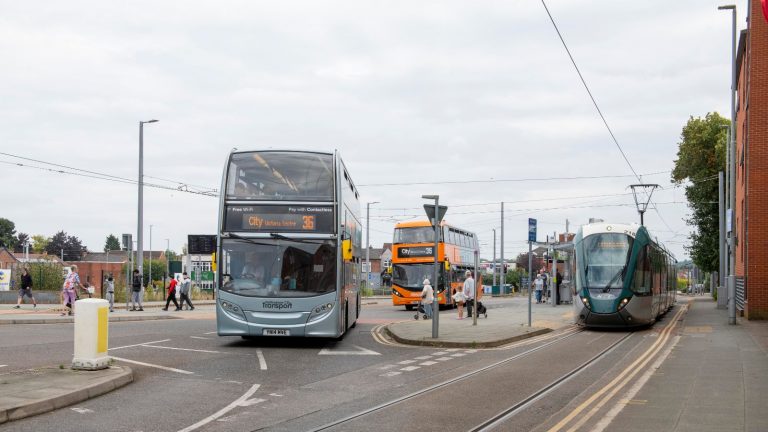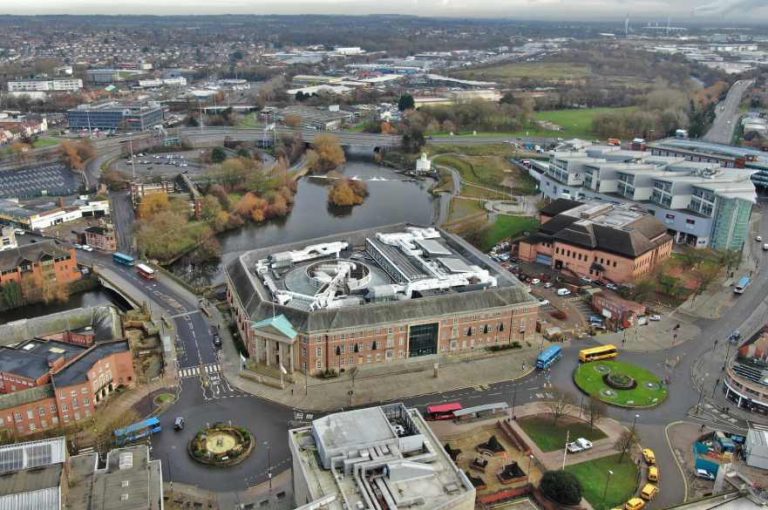New city centre base for Derby’s Transition2
East Midlands Zero Carbon Innovation Centre opens
Manufacturers tackle EU trading, attracting staff and being sustainable at East Midlands conference
UK economy contracts
UK government expands defence contracts for SMEs
The UK government has announced new measures to increase small and medium enterprise (SME) involvement in defence contracts, following its commitment to raise defence spending to 2.5% of GDP by April 2027. A new hub will be launched to improve SME access to the defence supply chain, and the Ministry of Defence (MoD) will introduce direct SME spending targets by June.
Currently, nearly 70% of defence spending goes to businesses outside London and the South East, but only 4% reached SMEs in 2023-24. The new hub aims to address this gap by working with suppliers across the UK to increase procurement opportunities for smaller firms, enhance competition, and accelerate innovation.
Defence spending supported over 430,000 UK jobs last year, with government contracts injecting £28.8 billion into UK industry. Regional spending increases included a 30% rise in the East Midlands (£328 million), 20% in Northern Ireland, and nearly 19% in Yorkshire and the Humber. The government says expanding SME participation will drive further economic growth, create jobs, and strengthen the UK’s defence industrial base ahead of the upcoming Defence Industrial Strategy.
Fleets in East of England rely most on independent garages
Research from epyx shows that fleets in the East of England are the most likely to use independent garages for service, maintenance, and repair (SMR), while those in Wales are the least likely.
From January 2024 to March 2025, 62% of SMR jobs for fleets in the East of England were handled by independent garages. Other regions with high independent garage usage include Scotland and the West Midlands (59%), the East Midlands (58%), and London (55%). The South East stood at 50% at the lower end, while Wales had the lowest rate at 46%.
The data, sourced from epyx’s 1link Service Network platform, suggests that fleet SMR policies, vehicle type, and the availability of franchise dealers may influence regional differences. While independent garages serviced 72% of vans, only 44% of company cars were maintained outside franchise networks. Hybrid vehicles had the lowest independent SMR rate at 32%, while independents maintained 42% of electric cars.
Epyx notes that fleet preferences and used market expectations drive these trends, with franchise dealer service histories often seen as more valuable for resale, particularly for company cars. However, the increasing share of EV maintenance by independent garages suggests a growing capacity to service electric fleets.
Stagecoach completes Chesterfield depot electrification ahead of fleet transition
Stagecoach has completed the electrification of its Chesterfield bus depot, the first of four sites being upgraded in partnership with e-fleet solutions provider VEV. The project will support the introduction of 57 electric buses in Spring 2025, replacing over two-thirds of the depot’s diesel fleet, which serves Chesterfield and northeastern Derbyshire.
The upgrade was funded through the UK government’s ZEBRA 2 scheme, Derbyshire County Council, and Stagecoach. Chesterfield is the largest depot in the initiative, with similar projects underway in Leamington, Nuneaton, and Rugby. A total of 150 electric buses will be deployed across all four sites.
The Chesterfield depot now features 27 dual 120kW DC chargers from Eko Energetyka, enabling 54 simultaneous charging points. A 2.5MVA power upgrade has been completed, and a 234kWp rooftop solar system is under construction, expected to generate 200MWh of electricity annually and reduce carbon emissions by around 48 tonnes per year.
VEV, backed by energy firm Vitol, has managed the project from fleet and power analysis to charger installation, staff training, and ongoing operational support. The company has also integrated its VEV-IQ smart charging and energy management platform, which connects with Stagecoach’s vehicle telematics to optimise charging, manage power loads, and minimise energy costs.
With Chesterfield’s electrification complete, work will continue on the remaining depots as Stagecoach transitions to a lower-emission fleet.
Derbyshire councils propose North-South split to save up to £93m
Derby City Council and eight Derbyshire district and borough councils have proposed splitting the county into two unitary authorities, claiming it could save up to £93 million over five years at a one-time cost of up to £25 million.
Their plan, now under review by individual councils, outlines two options: one placing Amber Valley in a northern council with High Peak, Derbyshire Dales, Chesterfield, North East Derbyshire, and Bolsover, while the southern council would include Derby, Erewash, and South Derbyshire. The second option moves Amber Valley to the south, keeping other districts unchanged.
Under either scenario, the northern council would face a financial deficit—£1.5 million if Amber Valley is included and £1.3 million if it is not—while the southern council would operate at a surplus of £8.6 million or £8.4 million, depending on Amber Valley’s placement.
The North council’s debts would range from £542 million to £560 million, while the South council’s debts would be between £811 million and £829 million. The plan would also cut the number of councillors from 447 across 10 councils to 148 across two, with each councillor representing 5,500 residents.
The Derbyshire County Council is working on a competing proposal without district involvement and claims its plan could save £133 million over five years, but it has not yet released full details. Initially, the county council suggested a single unitary authority for all of Derbyshire, but it later clarified it is pursuing a model with one council for the county and Derby remaining separate.
The district councils’ proposal will be submitted for initial review on 21 March, with a public consultation to follow later this year and a final submission in November.
Business leaders invited to help shape Greater Lincolnshire’s economic future
Businesses have been invited to play a key role in the future growth of Greater Lincolnshire by becoming part of the Economic Advisory Panel.
Derby secures £3.3m in government funding for economic growth
Derby City Council has approved nearly £3.3 million in government funding to support local economic growth in the 2025/26 financial year. The funds come from the UK Shared Prosperity Fund (UKSPF) and will be distributed through the East Midlands Combined County Authority (EMCCA).
The UKSPF, initially launched in 2022 with a £2.6 billion budget, aims to support communities, local businesses, and workforce development. The government has extended the programme for another year, allocating £902 million nationwide as part of a transition agreement.
Derby’s funding allocation remains in line with previous years, reflecting a redistribution based on deprivation levels. The funds will strengthen local businesses, improve employability and skills, and support community initiatives.
Derby City Council emphasised the funding’s importance in maintaining economic stability and continuing investment in key areas amid ongoing budget pressures and potential future funding reforms.












